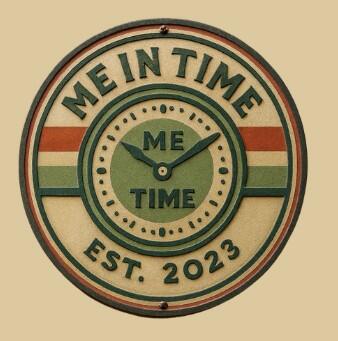
6 Nov 2025 ● Stuart Walker
Becoming a Counsellor: Reflections from Training to Practice (Part 3)

Introducing the Series
In the final part of his reflective series Becoming a Counsellor, integrative therapist and coach Stuart Walker looks back on his training through the lens of experience, revisiting the essays and reflections that once shaped his professional identity.
Having explored his early Learning Statement in Part 1 – Where It All Began and his final rationale in Part 2 – The Beginning of the End, Stuart now reflects on how time, practice, and perspective continue to evolve his understanding of what it means to be a counsellor.
With warmth and humility, he explores how self-awareness deepens, theory matures, and the process of “becoming” remains an ongoing part of every practitioner’s journey.
Read Previous Posts in the Series:
Part 3 – Looking Back, Looking Forward
By Stuart Walker, Integrative Therapist, Coach & Author – still a work in progress
Where We Left Off
This is Part 3 of my “rationale reflections.” If you’ve landed here first, stop – go back and read Part 1 and Part 2 first, otherwise it won’t make much sense.
So, where were we? Ah yes – my younger self, earnestly writing about Rogers, relational depth, and making “understanding noises” when talking to clients. (Still slightly embarrassed by that phrase, but let’s own it.)
Looking Back at My Training Voice
Reading that essay back now, two things strike me.
First, how hard I was trying to sound like I knew what I was doing. Quotes flying everywhere, ethical frameworks dropped in like confetti, Rogers practically sitting in the room with me. It was the voice of a trainee saying, “See, I’ve read the books, I belong here.”
Second, how much of me was already peeking through, even if I didn’t see it at the time.
I wrote about being vulnerable in the room, about silence, about presence, about magic. That wasn’t just coursework filler. That was me discovering what mattered to me in the work.
What’s Changed – and What Hasn’t
Take relational depth. Back then, it felt like this almost mystical ideal – something you might glimpse once in a while if you got lucky and ticked all the right boxes. These days, I still think it’s rare, but I’ve stopped treating it like some unicorn encounter. It’s more like a by-product of being consistently present, consistently human, and letting the work breathe. Sometimes it happens, sometimes it doesn’t – and that’s okay.
Or self-awareness. In my rationale, I went to town on that, probably because it was drilled into us on the course (and rightly so). I was almost apologetic about the parts of myself that weren’t perfectly congruent yet. Now I get that self-awareness isn’t about being squeaky-clean; it’s about knowing what you carry into the room and being honest with yourself about it. The “unfinished” bits are part of the work.
What I Didn’t Write Back Then
I also notice what I didn’t write back then. I didn’t mention burnout. At Level 4, I still thought being a counsellor meant giving everything to every client, every time. Since then, I’ve learned the hard way that if you don’t protect your own energy, the work eats you alive. Empathy fatigue is real. Boundaries aren’t a luxury; they’re survival.
And the big one – the business side. My rationale talked a lot about ethics, empathy and authenticity. What it didn’t touch was the reality that counselling is also a practice you have to run. Fees, marketing, admin, invoices, CPD – none of that made it into the assignment. But today, those things shape my daily work as much as Rogers or Mearns ever did.
Finding My Voice
So, what’s changed? Not the foundations. I’m still person-centred, still believe in clients as the experts in their own lives, still chasing those moments of magic when everything lines up.
What’s shifted is the tone. Less apologetic. Less textbook. More me.
Because at the end of Level 4, I was saying:
“Here’s what I think I should be doing.”
Now I’m saying:
“Here’s how I actually work, day in, day out.”
Becoming Never Ends
Because whether you’re starting out or years down the line, the journey is the same: it’s about becoming.
Looking back at my Level 4 self, I can see the nerves, the earnestness, the way I clung to the Ethical Framework like a life raft. But I don’t look back with criticism; it’s with warmth. That was me doing my best with what I knew then, and it laid the ground for the therapist I’m still evolving into now.
That guy gave me a solid start, and I’m thankful to him.
And here I am, still building on it – and still wondering if maybe Freud had a point and Rogers didn’t get everything right. But that’s a debate for another blog.

An Invitation to Reflect
If you’re a new counsellor reading this, maybe that’s the bit worth holding onto. Your rationale isn’t a final answer; it’s a snapshot. You’ll keep rewriting it, in practice if not on paper, every year you do this work.
So here’s my invitation: dig out your own rationale, or your learning statement, or even those first nervous notes you scribbled when you started training. Read them. Cringe a bit. Smile a bit. And notice the growth.
And if you haven’t started yet, even better. Write something down now. Capture how you feel at the very beginning – your hopes, your fears, your questions. One day you’ll look back on it with the same mix of humour, humility and pride.
— Stuart Walker
Recommended Reading
- The Body Keeps the Score – Bessel van der Kolk
- Grief Works – Julia Samuel
- Letters to a Young Therapist – Mary Pipher
- What Freud Really Said – David Stafford-Clark


